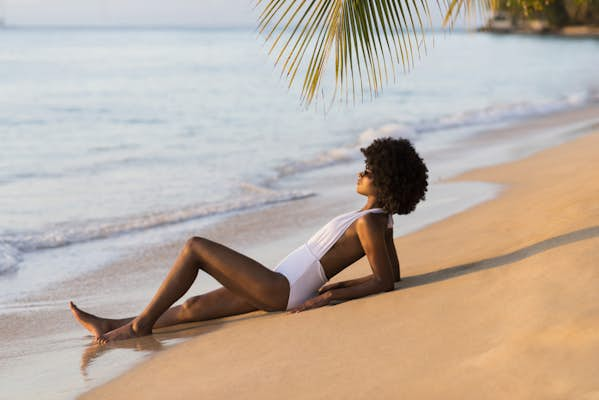What ABC island is best for me
4 min read
The ABC Islands – Aruba, Bonaire and Curaçao – sit just off the northern coast of South America, an amiable trio that appeals to sun-seeking travelers from all over the world.
At first glance, they may seem like they’re all the same destination, just in slightly different fonts. While they do share some elements of culture and geography, each one has its own personality that sets it apart as a destination.
Whether you’re into underwater adventures, lazing on the beach, or diving into Caribbean culture, here’s our guide to picking the right island for you.
Best for underwater exploration
Bonaire
While both Aruba and Curaçao offer diving and snorkeling experiences, the tiny island of Bonaire is well known throughout the global diving community for its world-class reef system, regarded as one of the healthiest in the Caribbean. And while that superlative is enough to justify booking a ticket, there’s another bonus: the diving here is also some of the most accessible, with spectacular sites sitting only a few meters offshore.
Bonaire is ringed by its National Marine Park, 6700 hectares of protected waters featuring 85 separate dive sites, many of them accessible simply by walking into the water. These sites are marked by yellow stones placed along the main roads tracing the circumference of the island, and each one yields a unique underwater experience.
Best for beaches
Curaçao
All three islands are great destinations for sun bums looking for a bit of Caribbean Vitamin D, but both Aruba and Bonaire’s coastlines are largely rocky. If you want a plethora of picturesque sandy beaches to choose from, Curaçao is your destination – the island features a series of pristine beaches hemmed in by dramatic limestone and coral stone cliffs, and each one offers activities that cater to every type of traveler.
Families will love the gorgeous crescent known as Grote Knip and won’t be left wanting for amenities, while those looking for a little more peace and quiet will love Klein Knip and Playa Lagun. Adrenaline seekers will enjoy the cliff jumping at Playa Forti, while those looking for a little bit of luxury will find themselves right at home at the beach clubs of Jan Thiel and Papagayo.
Best for partying
Aruba
Looking to blow off some steam, island-style? Aruba’s prolific resort area offers option after option for beachside revelry – stylish lounges, energetic clubs, piano bars, casinos, you name it. Most venues can be found along the coastline in Oranjestad or slightly further north in Palm Beach. This whole area buzzes throughout the day, but come nightfall it takes on a festive, genial vibe.
Honorable mention for this category? Curaçao. The nightlife options in Willemstad may not be as numerous as they are in Aruba, but they have a local vibe and are still plenty of fun.
Best for culture
Curaçao
The largest of the three islands and the only one with a major economy besides tourism, Curaçao acts as the de facto art and cultural center of the ABC Islands. Here you’ll find art and history museums, galleries, music venues, and a bustling capital city that doubles as a Unesco World Heritage Site.
If you’re interested in history, the Kura Hulanda Museum tells the important but tragic story of the history of enslaved people in Curaçao and the Caribbean – a must-see to understand the island’s past and present.
Art lovers can spend a whole afternoon at Landhuis Bloemhof, a contemporary art museum featuring sculptures, installations, and an entire gallery made out of thorns. Those interested in culture outside of museums shouldn’t miss the restaurants and bars of Pietermaai or the expansive street art in Otrobanda.

Best for good weather
Aruba
While all three islands are sunny places largely out of the path of Caribbean hurricanes, Aruba wins the award for best weather thanks to the balmy trade winds that constantly sweep across it. These winds have shaped the island’s geology and even its flora – just look at the bent fofoti trees – and have a lovely cooling effect, relieving you from the hot sun that beats down the vast majority of the year.
That said, the sun’s rays are intense even with the cool breeze, so always layer on that SPF. But as the sun starts to set and that breeze flutters across the island, you really do see why it’s called paradise.
Best for watersports
Aruba/Bonaire
It’s tough to pick a winner for this one, so we are settling for a tie – both Aruba and Bonaire are known for their kitesurfing, windsurfing, and diving scenes, so adrenaline seekers will be well positioned for a great trip on either island.
Aruba hosts the Hi-Winds Caribbean Championship every year, which features kitesurfing, windsurfing, paddleboarding, kitefoiling, and mountain-biking categories and draws spectators from around the world. Bonaire has a huge windsurfing scene at Sorobon on Lac Bay, kitesurfing on its southwestern shore, and it hosts an annual international sailing regatta.
Best for off-the-beaten-track travel
Bonaire
Arguably the trio outlier when it comes to tourism traffic, humble Bonaire will surprise and delight those willing to make the extra effort to hop over to its rocky shores. While the island is no secret in diving/snorkeling circles, it remains a quiet, friendly place to visit, as big resorts and mass tourism have yet to take over any part of the island.
Kralendijk and Rincón offer small-town vibes, and don’t be surprised if you get whisked into an impromptu sight-seeing tour with a local – Bonarians are proud of their nature and culture, and it shows in their hospitality and their collective land stewardship.





